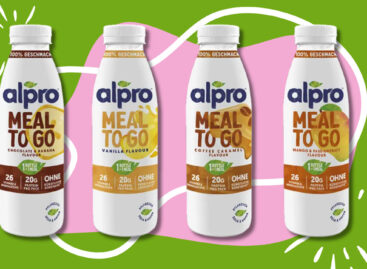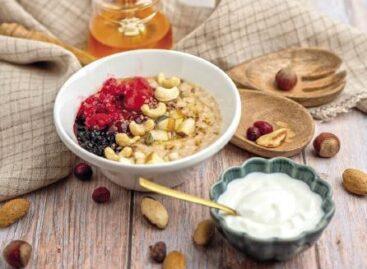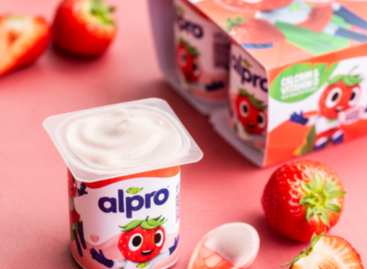Iced coffee quickly bounced back
The drop in iced coffee sales had already been noticeable in the last 4 months of 2022, and the trends continued for the better part of 2023.
This article is available for reading in Trade magazin 2024/5

Dóra Szekeres
senior brand manager
HELL ENERGY
Magyarország
“If we look back at 2023, in Hungary the iced coffee category contracted by 7.7% in unit sales and 8.5% in volume compared to 2022”,
says Dóra Szekeres, senior brand manager of HELL ENERGY Magyarország Kft. (citing NIQ data).
Then the situation took a U-turn by the end of 2023 and the figures from January 2024 paint an even more positive picture for this year, according to Odett Bozók, junior channel and category specialist of FrieslandCampina Hungária ZRt.
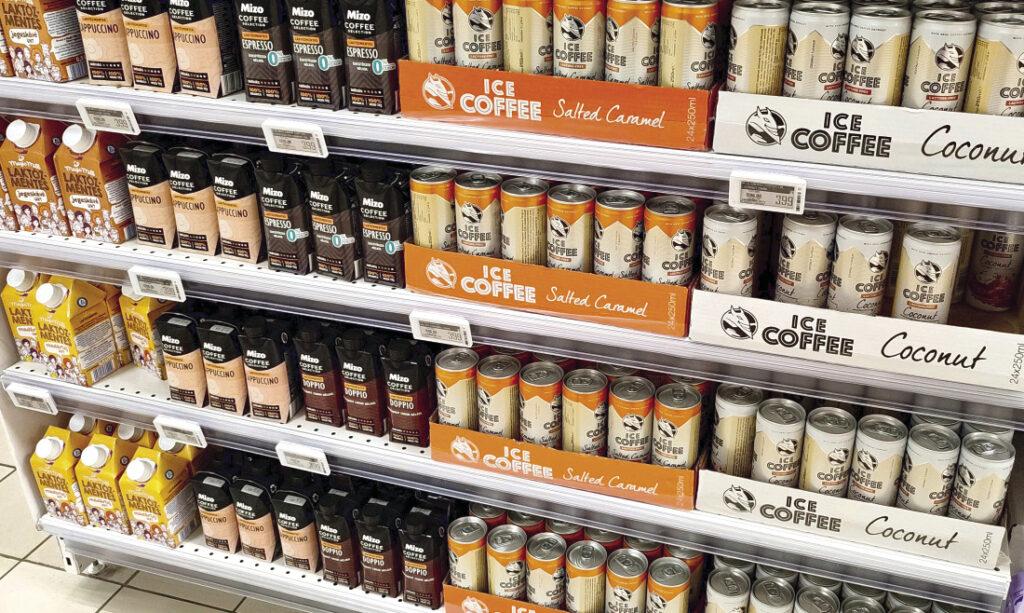
Downtrading is not significant in the category, with private label products also down by two digits in volume

Odett Bozók
junior channel & category specialist
FrieslandCampina
Hungária
“At the beginning of the year we saw single-digit growth in value and double-digit growth in volume in the iced coffee category compared to the beginning of last year. The key drivers of this were the large retailers and discounters”,
she adds.
Looking behind the numbers, what we see is that fewer households purchased coffee drinks last year, with lower frequency and fewer drinks bought per shopping trip than the year before.
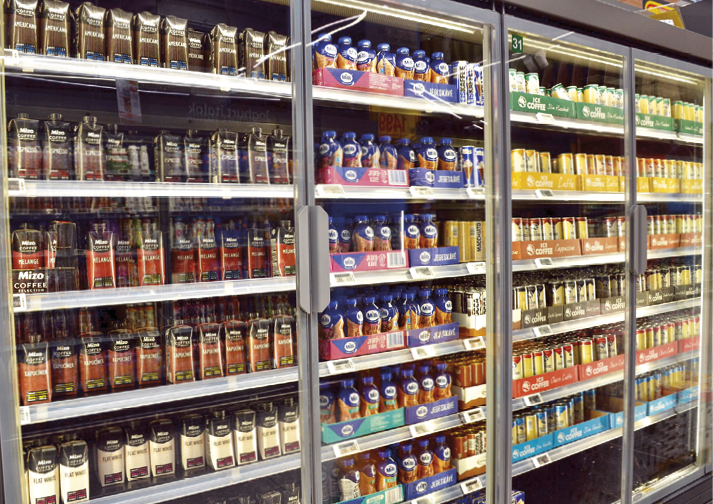
The ice coffee segment has been driven by innovations
New flavours are welcome
It is good news for market players that the sales drop was temporary and relatively small, and they can also be pleased because the iced coffee category is still driven by innovation: consumers are open to new flavours, actively looking for them in stores. HELL is constantly following consumer trends and the year 2024 will also bring new innovations. In April the newest flavour in the portfolio, Pink Latte will be available for the first time in the brand’s history – for a limited time only. This product is also made without artificial colours, using real Arabica and Robusta coffee extracts, and with the familiar 40 mg/100 ml caffeine content. The new drink is available on store shelves in eye-catching, vibrant packaging.
FrieslandCampina Hungária has found that the surest way to increase sales is to roll out new innovations and to come out with limited edition products. The success of the Pöttyös Macchiato and Milli iced coffee 0% products prove this very well. Shoppers are trying exciting new flavours even if the product prices are higher. The market is becoming more diverse not only in flavours but also in packaging types. Milli iced coffees are sold in practical recyclable PET bottles, but paper and aluminium cans are also available from the big brands.
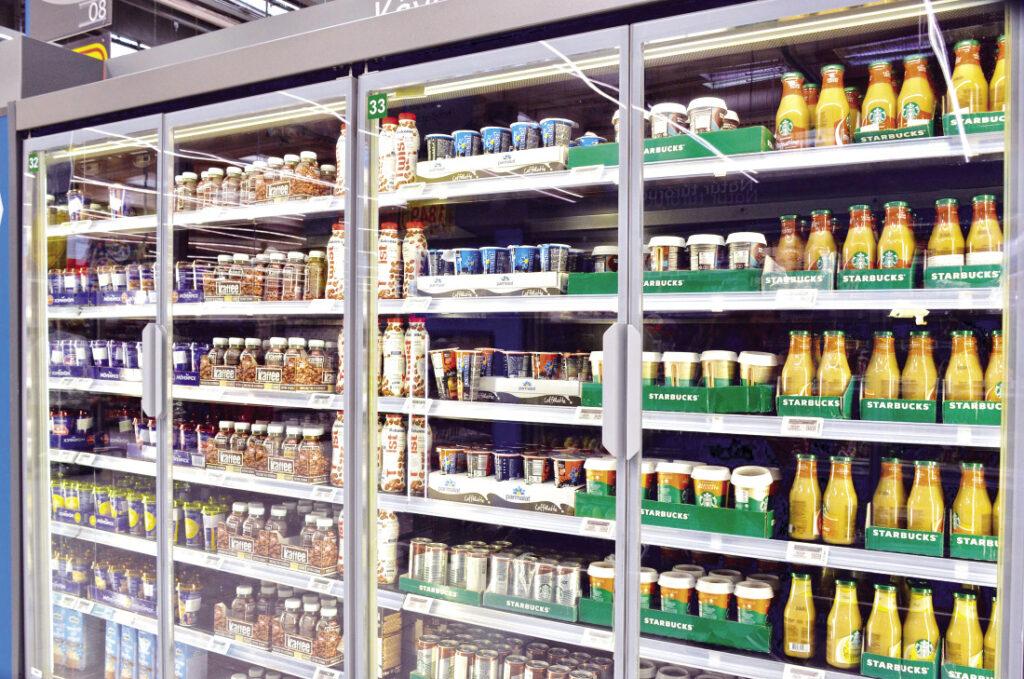
The market is becoming increasingly diverse not only in terms of flavours, but also in terms of packaging types
Plant-based alternatives do well
Plant-based dairy products are finding their way to consumers even in difficult market conditions, due to growing interest in them and the continued broadening of the product category.

Richárd Révész
marketing director
Danone
“The Alpro Barista category is one of the most important and dynamically growing plant-based drink segments in our portfolio”,
says Richárd Révész, marketing director of Danone Magyarország.
The Barista category isn’t only given emphasis in the case of retail channels, but is also a priority for HoReCa partners, adds Vivien Németi, senior plant-based innovation brand manager CEE (Alpro).

Vivien Németi
senior plant-based
innovation brand manager
CEE (Alpro)
Danone Magyarország
“With the latter it isn’t only the low price that is decisive, but it is also important to make perfect drinks from a professional perspective. To make working with our plant-based drinks easy for baristas – while still delivering the best flavour – it is essential to have the right quality ingredients”,
says Vivien Németi. //
Manufacturer brands dominate
In Hungary iced coffee sales reached HUF 17m in 2023 – an increase of 6% compared to 2022
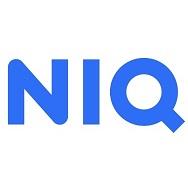

Guest writer:
Veronika Mikesy
analytic insights
associate
NIQ
However, volume sales decreased by 9% in the category, with a total of 120,000 hectolitres of iced coffee consumed in 2023. The average price level for the category increased by 16% between 2022 and 2023, to HUF 1,370/litre. Manufacturer brands make up for 85% of the category in value, 1 percentage point more than in 2022. Branded products account for 83% of volume sales, up 2 percentage points. Nearly half of unit sales are by the canned format and 98% of products sold are of 201-400ml size. //
Home consumption takes a dive
Iced coffee consumption dropped 18% in 2023 compared to 2022, according to recent data from Consumer Panel Services, which measures household consumption.
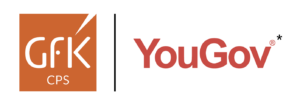

Guest writer:
Albert Szőke
senior consultant
Consumer Panel Services
The price increase in the category was only 16% (which isn’t much compared to the 23% FMCG inflation), and there was also some downtiering in the segment. Thus, like-for-like category sales were down by almost 5% in value. The main factors behind the decline in iced coffee volume sales are a reduction in the frequency of purchases and in the basket size. The volume sales drop in the category seems to be less due to suffering impulse/on-the-go purchases, as the purchasing for home consumption has reduced much more in volume. It is noteworthy that volume sales of branded iced coffees decreased by only 10%, while private label (PL) sales plunged nearly 50%. On average the prices of branded iced coffees have grown by only half as much as PL prices, so today some brands are cheaper than PLs. //
Related news
Dietitians recommend more conscious protein consumption
🎧 Hallgasd a cikket: Lejátszás Szünet Folytatás Leállítás Nyelv: Auto…
Read more >Related news
The Store of the Future opens again at the SIRHA Budapest exhibition! (Part 1)
🎧 Hallgasd a cikket: Lejátszás Szünet Folytatás Leállítás Nyelv: Auto…
Read more >Cheese-cocoa-peach jam: these are the most popular cookie flavors
🎧 Hallgasd a cikket: Lejátszás Szünet Folytatás Leállítás Nyelv: Auto…
Read more >

